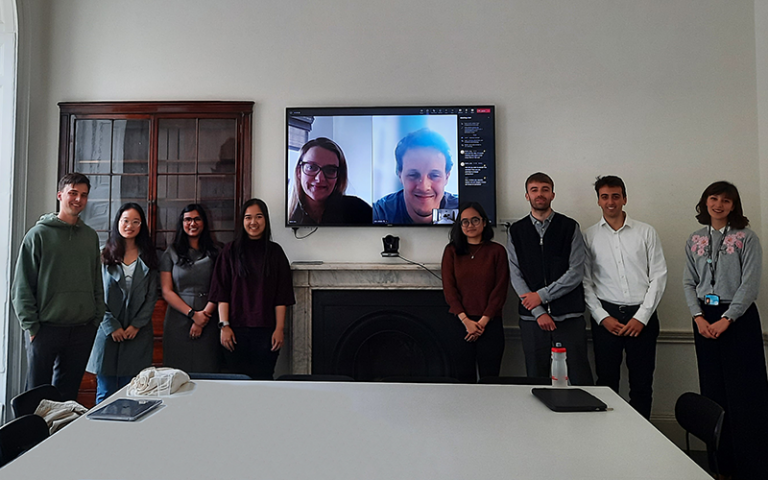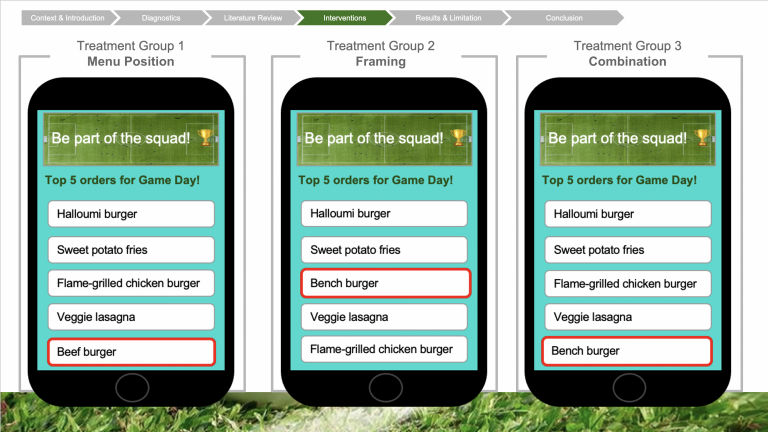Students' behavioural economics intervention aims to reduce football fan’s meat consumption
6 June 2022
The work presented to an award-winning environmental organisation experimented with different framing and positioning to make the meat option less appealing.

Last month, five Economics and Policy of Energy and the Environment MSc students presented their work on behavioural economics and sustainability to HUBBUB - an award-winning environmental organisation who run campaigns encouraging positive everyday actions for the environment.
The presentation was developed as part of the Behavioural Economics and Game Theory for the Environment module, where students learn how theories from psychology - which have been recently incorporated into economics as a step up from neoclassical economic theories that assumed perfect rationality of individuals - and explore how these new theories can be applied to environmental issues.
Addressing the consumption of large quantities of red meat by football fans, students proposed a behavioural economics intervention aimed at discouraging the consumption of meat burgers by altering the way food is presented using different framing and positioning. The interventions proposed by the team were:
- Naming the meat burger 'Bench Burger' - inspired by the negative connotations of being on the bench in a football game
- Positioning the meat burger as the final option on the menu
- The combination of the two above

HUBBUB staff then gave the group feedback on their work and made suggestions for improvement. These included: considering alternative names for the meat burger; to think about which partners they could collaborate with if they wanted to put this intervention into practice; and to think about short vs long term effects of this intervention.
This was a great opportunity for them to apply what they have learnt in class to a real-world problem and to present their work to an external organisation.
Arianna Buratto, Postgraduate Teaching Assistant for Behavioural Economics and Game Theory for the Environment
 Close
Close

